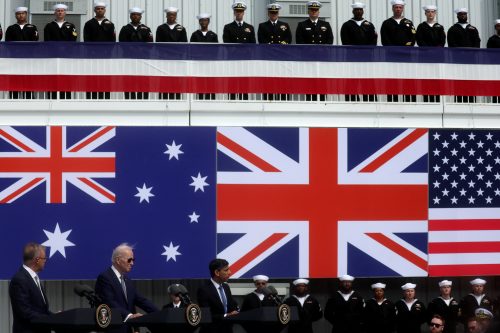[동아시아포럼] 호주 안보 시스템에 동남아시아 국가들의 지원이 필요한 이유
2021년 9월 AUKUS(호주-영국-미국) 연합 탄생, 중국의 아시아-태평양 확대 견제 목적 동남아 국가들에 사전 동의 얻지 않은 탓에 각종 불만 등장, 군사력 확대에 대한 우려도 역내 군사 정책적 투명성 확보, 국제법 이행 약속, 중국과 관계 개선 등 복잡한 숙제 떠안아
[동아시아포럼]은 EAST ASIA FORUM에서 전하는 동아시아 정책 동향을 담았습니다. EAST ASIA FORUM은 오스트레일리아 국립대학교(Australia National University)의 크로퍼드 공공정책 학교(Crawford School of Public Policy) 산하의 공공정책과 관련된 정치, 경제, 비즈니스, 법률, 안보, 국제관계 및 사회에 대한 분석 및 연구를 위한 플랫폼입니다.
저희 폴리시코리아(The Policy Korea)와 영어 원문 공개 조건으로 콘텐츠 제휴가 진행 중입니다.
Aristyo Rizka Darmawan 박사는 호주국립대학 아시아 태평양 지역 연구소에 재직하고 있으며, 인도네시아 대학(Universitas Indonesia)에서 국제법 강의를 맡고 있습니다.

지난 2021년 9월 호주가 영국, 미국과 안보 동맹(AUKUS)을 체결했다는 소식을 발표하자 동남아시아 각국은 즉각 반발했다. AUKUS와 중국 간의 관계가 자칫 자국 안보에 위협이 될 수도 있다는 사실 때문이다. 반면 호주에서는 인근 국가들의 우려가 AUKUS에 대한 이해 부족에 기인하는 만큼, AUKUS 발표 전에 사전 협의가 있었더라면 오해를 불식시킬 수 있었을 것으로 바라봤다.

호주가 직면한 3대 군사·외교적 문제
AUKUS가 동남아시아에 평화·안정을 제공하는 구성체로 작동하기 위해서 호주는 3가지 요소를 고려해야 한다. 첫째, 동남아시아 인접국들과의 외교적 신뢰 관계 구축이다. 특히 AUKUS의 효과에 대해 회의적인 입장을 견지하는 국가들의 신뢰를 얻는 것이 중요하다. 둘째, 영국, 미국과 더불어 호주가 나서서 AUKUS가 국제법을 지키는 연맹이라는 것을 인근 국가들에 주지시켜야 한다. 셋째, 중국과 평화적이고 안정적인 관계 구축에 전념할 것이라는 확신을 주변국들에 심어줘야 한다.
호주의 AUKUS 지지자들은 동 협의체가 아태지역에서 점증하는 중국의 군사적 영향력을 억지함으로써 아태지역의 안정성을 증대시킬 것이라고 주장한다. 그러나 비판론자들은 호주가 미국 등 전통적인 서양 동맹진영과 협력을 꾀하기보다는 아태지역의 인접국들과 전략적 안보협력을 도모해야 한다고 역설한다.
반면 AUKUS 반대론자들은 동남아시아 지역의 반발을 우려하는 모습이다. 논란이 많은 지역 이슈들과 마찬가지로 동남아시아 국가들은 AUKUS에 대해 의견의 합치를 이루지 못하고 있다. 필리핀과 베트남, 싱가포르는 명시적이든 묵시적이든 동 3자협의체를 환영하는 반면 인도네시아와 말레이시아는 다소 비판적인 입장을 견지하고 있다.
AUKUS에 대한 동남아 각국의 상이한 반응
AUKUS에 대한 반응이 동남아 각국 간에 다르게 나타나는 것은 그간의 아세안(ASEAN) 국가들의 행태를 봤을 때 특이한 것은 아니다. 필리핀, 베트남, 싱가포르는 전통적으로 역외 군대 주둔에 긍정적인 입장을 보여온 반면, 인도네시아와 말레이시아는 항상 이를 경계해 왔다. 인도네시아의 이와 같은 회의적 반응은 수카르노(Sukarno) 초대 대통령까지 거슬러 올라간다. 결국 인도네시아를 비롯한 인접국들의 신뢰를 확보하는 것이 호주의 이익과도 직결되는 셈이다. AUKUS에 대한 인접국의 의구심은 호주가 역내에서 더욱 강한 결속 관계를 형성하는 데 장애물이 될 수밖에 없기 때문이다.
동남아 각국과 외교 채널을 열고 정보 흐름의 투명성을 보장해 줘야 하는 이유도 여기에 있다. 최근 사전 협의 부재에 따른 충격이 동남아 각국 간 관계 악화의 주원인이었다는 것을 인지한 호주는 뒤늦게나마 아세안 국가들에 설명 자료를 보낸 것으로 알려졌다.
지난 2023년 2월에 인도네시아 외교부 장관 레트노 마르수디(Retno Marsudi), 국방부 장관 프라보우 수비안토(Prabowo Subianto)는 호주 외무부 장관 페이 웡(Penny Wong), 국방부 장관 리차드 마를레스(Richard Marles)와 인도-태평양 지역의 전략적 안보 논의를 위한 회동을 진행했다. 예상했던 대로 AUKUS는 핵심 이슈로 등장했고, 인도네시아는 ‘협의체의 투명성과 핵 비확산에 대한 약속의 중요성’을 반복적으로 강조했다.
2023년 3월의 공동 지도자 성명 발표 이후 마크 해몬드(Mark Hammond) 호주 해군 부사령관은 동남아시아 순회 중 인도네시아의 무하마드 알리(Muhammad Ali) 해군 총사령관과 자카르타에서 군사 회담을 진행했다. 알리 총사령관은 이어진 공식 강연에서 “인도네시아 해군은 AUKUS가 국제법을 준수할 것이라고 믿는다”며 AUKUS에 대한 경계를 다소 완화한 모습을 보였다.
호주는 또한 최신 국방전략검토에서 AUKUS 전략의 윤곽을 제시해 투명성을 더욱 보완했다. 연이은 군사 회담과 백서 발행 등으로 투명성의 확보해 동남아시아의 신뢰를 회복하는 것이 호주 국방 강화에 핵심이라는 것이 호주 내부에서 공감대를 형성하고 있는 것이다.
AUKUS, 국제법 준수하는 연맹이라는 신뢰 구축
국제법을 준수에 대한 신뢰 구축도 빠지지 않았다. 호주는 자국의 핵추진 잠수함에 핵무기를 탑재할 계획이 없다는 것을 여러 차례 강조했다. 이는 AUKUS가 핵확산금지조약(NPT)체제를 위반하지 않고 국제원자력기구(IAEA)의 수칙을 준수할 것이라는 메시지를 던진 것으로 풀이된다.
반면 IAEA 수칙과 NPT 체제에 대한 논의는 지속되고 있는데, 호주의 핵물질 수입이 잠재적으로 핵무기 이전 의무 위반으로 이어지는지, 결과적으로 IAEA와 NPT 조치들을 위반하는지가 그 핵심이다. 이에 호주는 자국이 핵공격력을 가진 잠수함을 만들 의도가 없다고 재차 강조하며 이러한 논의를 불식시키기 위해 노력하고 있다.
핵무기 규제 조약 준수와 더불어 호주는 유엔(UN)의 해양법협약(이하 UNCLOS)에 따른 잠수함의 통항에 관한 규정 역시 준수해야 한다. 호주의 핵추진 잠수함은 인도네시아 군도를 통항할 가능성이 높아 인도네시아 의회의 우려를 자아내고 있기 때문이다.
UNCLOS의 군도 통항, 무해통항 및 통과통항에 관한 규정에 따를 때 호주의 핵추진 잠수함의 경우 평시에는 인도네시아 수역을 통과할 수 있다. 다만 통항의 종류에 따라 각기 다른 의무를 준수해야 한다. 호주의 잠수함들은 인도네시아의 지정 군도항로를 통과하거나 국제통항에 이용되는 것이 자명한 수로를 통과할 때는 잠항을 할 수 있다. 다만 영해를 지나거나 비지정 군도항로를 통과할 경우에는 해수면으로 부상해 국기를 게양한 채로 항행해야 한다.
호주가 인도네시아의 인접국으로서 신뢰를 얻는 차원에서 UNCLOS의 규칙을 면밀히 살피는 것은 매우 중요하며, 규칙의 위반은 동 지역 국가들이 호주를 지역 안정의 위협요인으로 간주하게 됨을 의미하기 때문에 그 중요성은 강조할 만하다.
중국과의 평화적 관계 유지 약속도 필수
호주는 중국과의 평화적 관계를 유지하는 데에도 전념해야 할 것으로 보인다. 동남아시아에서 중국의 세력 확대에 대해 균형 전략을 도모하는 것도 도움이 될 수 있지만, 점차 악화되는 호주-중국 간 긴장이 동남아시아의 가장 큰 문제 중 하나임을 고려할 때 바람직한 방안으로 보기 힘들다는 분석이다.
2021년 9월의 AUKUS 선언 직후 말레이시아의 이스마일 사브리 야콥(Ismail Sabri Yaakob) 총리는 AUKUS의 존재가 남중국해 일대를 중심으로 타 국가들의 공격성을 자극할 수 있다고 발언한 바 있다. 중국의 호전적인 대(對)태평양 전략에 대한 우려가 AUKUS를 지지하는 국가를 비롯해 동남아시아 국가들 전역에 걸쳐 공유된 인식인 것을 알 수 있는 대목이다.
동남아시아 국가들의 불안에 대한 인식을 바탕으로, 호주와 중국이 각국의 차이를 얼마나 평화적으로 해결할 수 있는지가 해당 지역에서 평화와 안보를 유지하는 데 핵심적인 요인이 될 것이다.
일각에서는 AUKUS가 동남아시아 지역에서 중국의 위협적인 행동을 차단할 수 있을 것이라는 기대감을 갖고 있는 상황이다. 그러나 미국과 그 동맹국들을 믿을만한 파트너로 두는 것이 안보 관점에서 장점이 있더라도, 경제적 관점에서는 중국이 동남아시아 국가들의 제1교역국인 만큼 동남아시아 국가들의 운신의 폭을 줄이는 걸림돌로 작용할 것으로 전망된다. 결국 호주-중국 간 갈등이 심화할수록 동남아시아 국가들은 정치·군사적인 장점과 경제적인 이득 사이에서 복잡한 선택에 놓일 가능성이 높다.
AUKUS 연합의 탄생으로 인해 호주 입장에서 중국과의 관계 개선은 단순히 자국의 안보 문제를 넘어 아시아-태평양 일대의 지정학적 안정에도 큰 영향을 줄 수 있는 상황이 된 것이다.
Australia’s defense ambitions need Southeast Asian trust
Since its announcement in September 2021, AUKUS has been hotly debated both in Australia and Southeast Asia. Speculations among Australia’s neighbours on AUKUS’ potential consequences stem in part from a lack of prior consultations.
![]()
Australia needs to take into account three important issues if AUKUS were to bring peace and stability to Southeast Asia. First, Australia should build trust with its Southeast Asian neighbours, especially those critical to AUKUS’ success. Second, Australia must ensure AUKUS’ compliance with international law. Third, Australia should commit to building a peaceful and stable relationship with China.
AUKUS supporters in Australia argue that it will bolster stability in the Asia Pacific by deterring China’s growing military influence in the region. But critics argue that Australia should pursue more strategic security cooperation with its Asia Pacific neighbours rather than its traditional Western allies.
Chief among AUKUS critics’ concerns is Southeast Asia’s reaction. Like other contentious regional issues, Southeast Asian countries are not unanimous on AUKUS. The Philippines seems to welcome the trilateral arrangement and so are Vietnam and Singapore, albeit implicitly. Indonesia and Malaysia are more critical.
This is hardly surprising. The Philippines, Vietnam and Singapore have traditionally welcomed extra-regional military presence, while Indonesia and Malaysia have been wary. Indonesia’s discomfort even goes back to its first president, Sukarno. It is in Australia’s interest to gain its neighbours’ trust. Suspicion — particularly in Indonesia, one of Australia’s most important neighbours — will undermine Australia’s efforts to build deeper ties with the region.
Ensuring transparency and strengthening communication is crucial. Australia is trying to improve communication with its Southeast Asian counterparts after they were shocked by AUKUS’ lack of prior consultation.
In February 2023, Indonesian Foreign Minister Retno Marsudi and Defence Minister Prabowo Subianto met with Australian Minister for Foreign Affairs Penny Wong and Minister for Defence Richard Marles to discuss strategic security issues in the Indo-Pacific. AUKUS was high on the agenda with Indonesia reiterating ‘the importance of transparency in AUKUS cooperation and … a commitment to nuclear non-proliferation’.
After the release of AUKUS’ Joint Leaders Statement in March 2023, the Australian Chief of Navy Vice Admiral Mark Hammond went on a Southeast Asian tour and met with Admiral Muhammad Ali, the Chief of the Indonesian Navy in Jakarta. Following their meeting, Admiral Ali stated in a public lecture that the Indonesian Navy believe that AUKUS will comply with international law. While concerns remain, Indonesia has softened its tone.
Australia has also improved transparency by outlining its AUKUS strategy in the latest Defence Strategic Review. Intense communication and transparency are the best way to regain and retain Southeast Asia’s trust.
Complying with international law is also important. Australia has emphasised that these nuclear-powered submarines will not carry nuclear weapons. AUKUS will not violate the Treaty on the Non-Proliferation of Nuclear Weapons (NPT) and comply with all International Atomic Energy Agency (IAEA) safeguards.
But there are ongoing discussions at the IAEA and NPT on whether the transfer of nuclear material to Australia potentially violates the transfer of nuclear explosive devices obligation, thereby violating the IAEA and NPT safeguards. Australia has responded by reiterating that it does not seek to build any nuclear weapons-capable submarines.
Aside from meeting its nuclear treaty obligations, Australia must also comply with the United Nations Convention on the Law of the Sea (UNCLOS) rules on the passage of submarines. Australia’s nuclear-powered submarines will likely pass through Indonesian Archipelagic Sea Lanes, something that worries members of the Indonesian parliament.
Under UNCLOS rules of Archipelagic Sea Lanes passages, innocent passages and transit passages, Australia’s nuclear-powered submarines can pass through Indonesian waters in times of peace. But each passage carries different obligations. The submarines can remain submerged when passing through the designated Archipelagic Sea Lanes of Indonesia or the straits typically used for international navigation. But they must surface and show their flag when passing through territorial waters or non-designated archipelagic waters.
Observing UNCLOS rules is important for Australia to gain Indonesia’s trust as its immediate neighbour. Violating them may lead countries in the region to perceive Australia as a threat to regional stability.
Australia must commit to a peaceful relationship with China too. Counterbalancing China’s growing dominance may be beneficial, but an escalating Australia–China tension is one of Southeast Asia’s biggest concerns.
Shortly after the AUKUS announcement in September 2021, Malaysian Prime Minister Ismail Sabri Yaakob said that AUKUS might ‘provoke other powers to take more aggressive action in [the] region, especially in the South China Sea’. The concern about China’s increased aggression is likely shared by all Southeast Asian countries, even those that welcome AUKUS.
How Australia and China can work out their differences peacefully will be key to maintaining peace and security in the region.
AUKUS may provide a solution to China’s intimidatory actions in the region. But China is one of Southeast Asia’s most important economic partners, even if it is in Southeast Asia’s interest to have the United States and its allies — including Australia — as reliable partners. Any Australia–China conflict would be disastrous for the region.
Building and maintaining Southeast Asian trust through Australian transparency and compliance with international law will be critical to managing the delicate balance of deterring China without escalating tension.



![[동아시아포럼] 대만의 중국어교육과 소프트파워 전략](https://policyecon.com/wp-content/uploads/sites/7/2024/04/taiwan_EAF_20240319-768x513.jpg)
![[동아시아포럼] 중국, 기업 내 공산당 지부 설치해 민영기업 장악](https://policyecon.com/wp-content/uploads/sites/7/2023/08/기사-8.jpg)
![[동아시아포럼] ‘기회의 땅’ 일본이 베트남 노동자들의 외면을 받고 있다](https://policyecon.com/wp-content/uploads/sites/7/2023/09/기사-이미지.jpeg)
![[동아시아포럼] 일본 농업에 있어 근로조건 개선의 중요성](https://policyecon.com/wp-content/uploads/sites/7/2023/02/jin-768x768.jpg)
![[동아시아포럼] 일본산 해산물 수입 금지로 보여준 중국의 외교 전략 미숙성](https://policyecon.com/wp-content/uploads/sites/7/2023/10/2023-10-19T015602Z_252503338_MT1YOMIUR000NQC5TW_RTRMADP_3_IAEA-RESEARCH-TEAM-VISITS-IWAKI-FUKUSHIMA-400x267-1.jpg)
![[동아시아포럼] 일본 정부, 상장기업 여성 임원 비율 30% 목표](https://policyecon.com/wp-content/uploads/sites/7/2023/07/기사-1-3-1.jpg)
